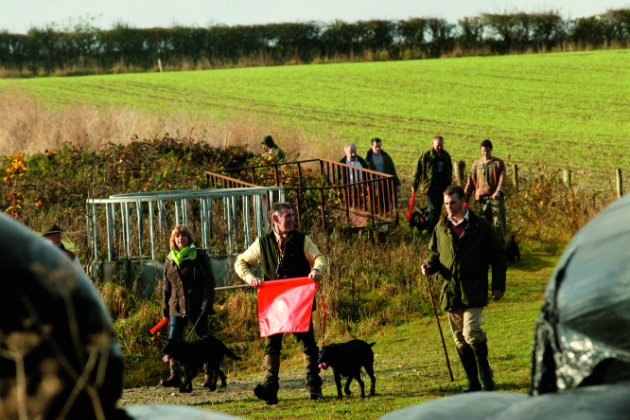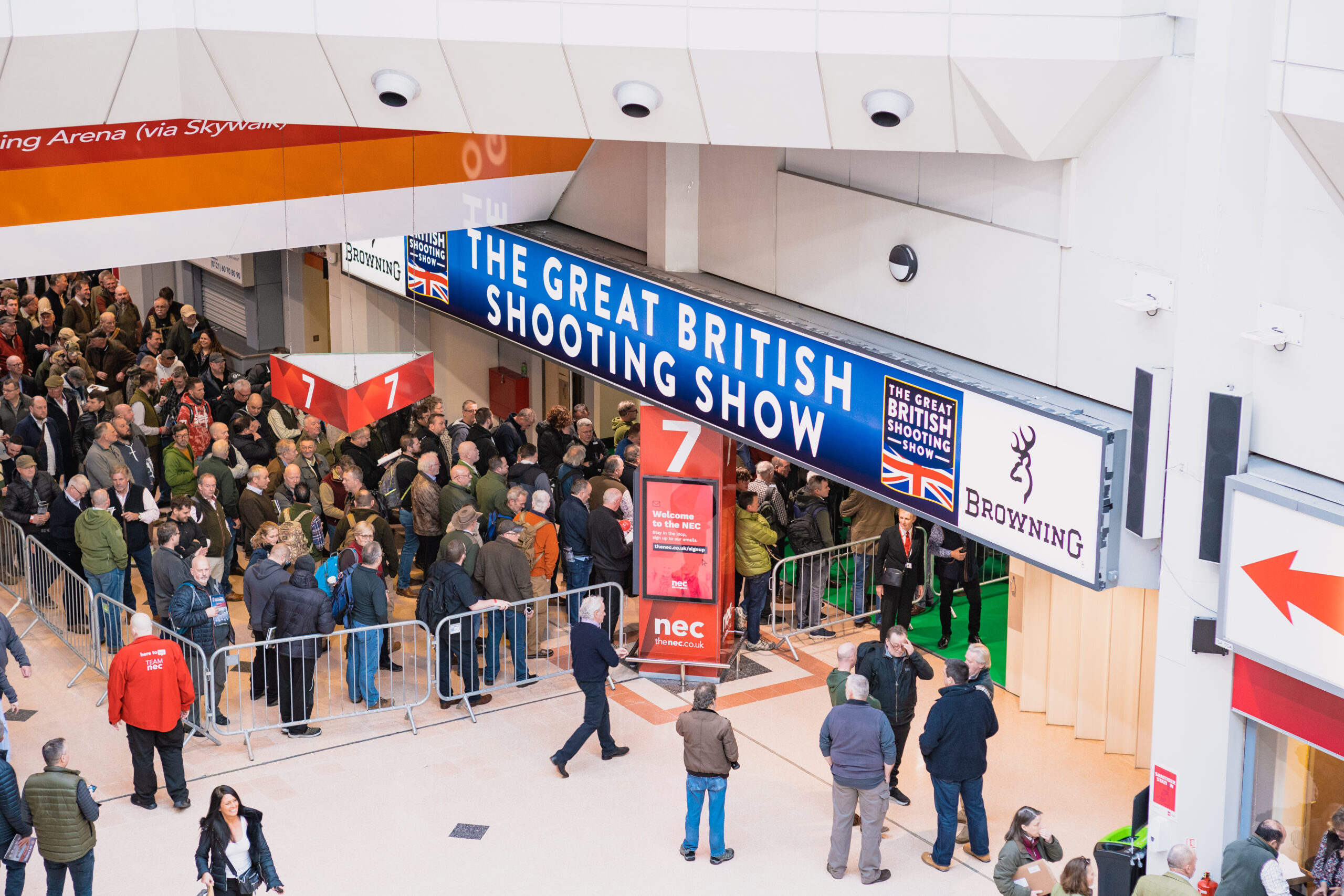What does a gamekeeper have in common with a Premier League football manager?
A gamekeeper, like a Premier League football manager, stands or falls by his results, so planning is vital to keep the team happy and to ensure a successful shoot day says Jamie Osborne

The keeper should congratulate the beaters after a drive to boost team spirit
There is nowhere for a gamekeeper to hide when a shoot day goes wrong — badly wrong. Sometimes the unexpected happens, of course, and no one is to blame when things turn sour.
That said, however, I am a big believer in making my own luck and stacking the odds in my favour through observation, preparation and planning. Put the hours in and the results will come. I hope.
Look at it this way. The keeper’s job — the pay apart — is a bit like that of a Premier League football manager. Both stand or fall by their results. I can certainly empathise with the look on the face of a football boss in his dugout at kick-off. I know only too well what that faraway, tight-jawed look signifies. I’ve been there. I am like it on the morning of a shoot day, when all eyes are on me, apprehension has set in and there is only a handful of hours to produce the goods in a professional way, after a year of hard work. It’s Cup Final stuff, all right.
No exceptional shoot has ever arisen out of sticking rigidly to the same old routine
For a shoot day to run seamlessly, a keeper has to analyse what is going on around him, make mental notes and apply what has been learned. It means that next time out, if needs be, the game plan can be tweaked or changed completely. I am sure that no exceptional shoot has ever arisen out of sticking rigidly to the same old routine on each and every shoot day. It is vital to be able to ring the changes. There’s no guarantee that something that’s worked once will work again.
For instance, I am forever moving pegs about to give Guns the best possible shooting, and where they go varies a lot during the season. It is not only wind direction that has an effect. Think about the reduction in holding cover, cultivations on arable fields, the loss of leaf and pheasants becoming cannier.
Don’t think of shoot days as being stand-alone events. They are part of a big cycle. The planning of the next shoot day starts almost immediately after the last one is over. Keep the big picture in focus, but concentrate on the little things too. Ignore that telephone call to the gamedealer to schedule game collection or put off the tiresome taxing of shoot vehicles at your peril.
Keepers can sometimes feel very alone on a shoot day, but actually they are never alone
He may be a solitary commander- in-chief for a few hours but a keeper has willing allies. His army of beaters and pickers-up are always happy to help. It’s a wonderful resource to be able to call upon. Remember, though, that management is a double-edged sword. These same people will also be looking to you for guidance and encouragement. Live up to the pips on your shoulders.
Essential briefing
Always brief beaters and pickers-up before a drive. It is a “must”. A briefing will remind your team what is expected of them, and it isn’t what you say, but the way that you say it that really gets results.
A calm, confident voice encouraging and directing a team of beaters wins loyalty and earns respect. Even if the beating line is a shade ragged at times, no beater likes a bawling bully. It creates a terrible, truculent atmosphere.
I always like to see a keeper congratulating the beating team after a drive. It boosts team spirit. Always talk up your team, as carrot is undeniably better than stick. Never take your beaters for granted, either. I like to speak to all of mine during the day to hear their views on how the drives went. The pickers-up often get as good a perspective of how a day’s unfolding as the Guns.
A good shoot captain is like gold dust
Similarly, a good shoot captain, with a keen eye for detail, is like gold dust for a keeper. See him as your right-hand man, able to provide a solution when a Gun runs out of cartridges or breaks an ejector.
It’ll pay dividends if you can speak to the captain throughout the day, especially on woodland drives, when it can be impossible to see where the birds are in relation to the Gun line. A quick shout then to the beaters of: “Hold the left” has saved many a drive, kept the Guns happy and the beaters’ spirits up.
After the final drive, I always make a point of going down to the Gun line, while the beaters’ cart wends its way home, to talk to the host. I must check all is well. It’s a personal touch but one with a twin purpose. I also want the pickers-up out in the country to know we are homeward bound.
Keepers can save a lot of time by doubling up like this on some jobs. At lunch, when I pay beaters and pickers-up, I note who is available for the next shoot day. It means less time on the phone, spares me worry and buys time to find stand-ins. As I say, as one day ends, the planning for the next one begins.

About the author: Jamie Osborne keepers on a 2,000 -acre Bedfordshire pheasant shoot with a mix of family and syndicate days. His passion is wild grey partridge conservation.








